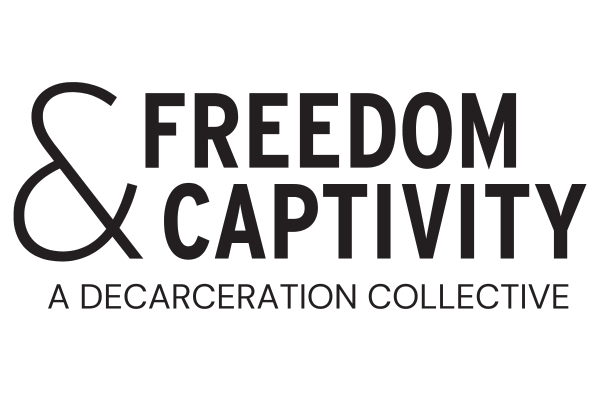
F&C Library
A collection of resources about how the criminal legal system works in Maine. The F&C Library offers empirically-based, analytical, FACTUAL information about Maine’s criminal legal system, incarceration, and effective responses to harm that do not involve incarceration. The collection includes essays published in various venues by members of the F&C Collective as well as essays commissioned by F&C specifically for this website. Contact us at freedomandcaptivity[@]gmail.com to suggest a topic or submit an essay. All submissions will be carefully reviewed, fact-checked, and edited.
Guide to Pathways for Release from Prison in Maine
The guide is designed to help incarcerated individuals navigate the complex process of incarceration in Maine and the various pathways for release currently available. Whether you're preparing for your own release, or supporting a loved one — this guide is here to help.
Parole offers an opportunity for a more just Maine
Maine is already known for being one of America’s safest states, but we can always do better. The absence of parole reflects an upsetting truth about Maine’s carceral system: it prioritizes punishment over rehabilitation. Let’s support LD 1941 and work towards a more equitable and just Maine.
Maine is the Worst
Sitting below the star on Maine’s flag is the word Dirigo , the state’s motto, Latin for “I lead. ” Maine’s leadership, however, is not solely for good causes. In many aspects of the criminal legal system, Maine leads by being more punitive than any other state in the Union. This report outlines where Maine is failing in comparison to both its neighboring states and the nation, while also acknowledging where Maine is truly leading–proving that change is safe, possible, and important.
Parole, Extreme Sentences, and Data Transparency
by Matt Matheny
LD178 would have made all adults serving sentences longer than 5 years eligible for a parole hearing. What does this group of people look like, and what would happen if these criteria changed?
A Restorative Pathway to Decarceration and Abolition
Catherine Besteman and Leo Hylton for the Justice Collaboratory (Yale Law School)
“Abolition” means different things to different people. To us, abolition is a process of working towards a society that prioritizes the healing of trauma, creating strong community bonds, investing in services and resources people need to live a healthy and dignified life, confronting and dismantling systems of oppression, and responding to harm with practices and processes of accountability and justice.
The Freedom & Captivity Curriculum Project
Linda Small describes the genesis of the F&C Curriculum Project and its impact on facilitators and the community as a chapter in the new book, Higher Education and the Carceral State: Transforming Together.
Criminal Record Forgiveness Offers Safe and Economical Second Chance to Deserving Mainers
Linda Small and Chandler Dugal are formerly incarcerated Mainers and fellows of the Colby College Justice Think Tank. They are providing this column as a guest contribution for the Maine chapter of the national Scholars Strategy Network, which brings together scholars across the country to address public challenges and their policy implications. Members’ columns appear in the Bangor Daily News every other week.
The Case for Second Chances: A Pathway to Decarceration in Maine
Catherine Besteman and Leo Hylton for the Maine Law Review
The article argues that Maine incarcerates too many people, for too long, for too many things, at too great of an expense. We offer evidence to support this claim, briefly review some of the criminal legal legislation that shaped our present reality, and show how recent efforts at reform have been, at best, only modestly successful.
Toward a Cage-Free Maine
Catherine Besteman and Leo Hylton for The Bollard (January, February, and March 2023).
We present here a restorative pathway to decarceration and abolition for Maine. We believe this pathway can alleviate social problems and ensure community safety much more effectively than hyper-incarceration ever could. Our vision is far-reaching and unlikely to be fully realized in our lifetimes, but it includes many building blocks we can establish right now, providing a strong foundation for future generations to continue the work.
18 Steps to Decarceration in Maine!
18 steps to decarceration in Maine — and it starts now! Excerpted from Leo Hylton and Catherine Besteman’s three-part essay, "Restorative Pathway to Decarceration and Abolition," originally published in the January, February and March 2023 issues of The Bollard.
A Brief History of Incarceration in Maine
Prior to the onset of the coronavirus pandemic, there were about 5000 people incarcerated in Maine and another 7000 under criminal justice supervision, including a disproportionate number of people of color. Even though Maine has the lowest violent crime rate and one of the lowest overall rates of incarceration in the U.S., Maine still incarcerates people at a higher rate than most countries in the world.
U.S. Incarceration Timeline
A primary issue of our contemporary era is mass incarceration. There are currently 2.2 million people incarcerated in the U.S., a 500% increase from a half century ago, at an annual cost of nearly $100 billion. The number of immigrants in detention in the U.S. has quintupled over the past 40 years and the number of immigrant detention centers has grown to over 200 because of new laws requiring mandatory detention of unauthorized immigrants.
Maine's Criminal Legal Operations
What are the components of Maine’s criminal legal operations? How does the system work, from arrest, to bail, to finding a lawyer, to sentencing, to the policies and practices that determine and structure incarceration, to reentry? These short essays, contributed by lawyers, advocates, currently and formerly incarcerated people, students, policy experts, and educators, break down Maine’s criminal justice operations. Together they tell a mosaic story of how carcerality operates in Maine.
